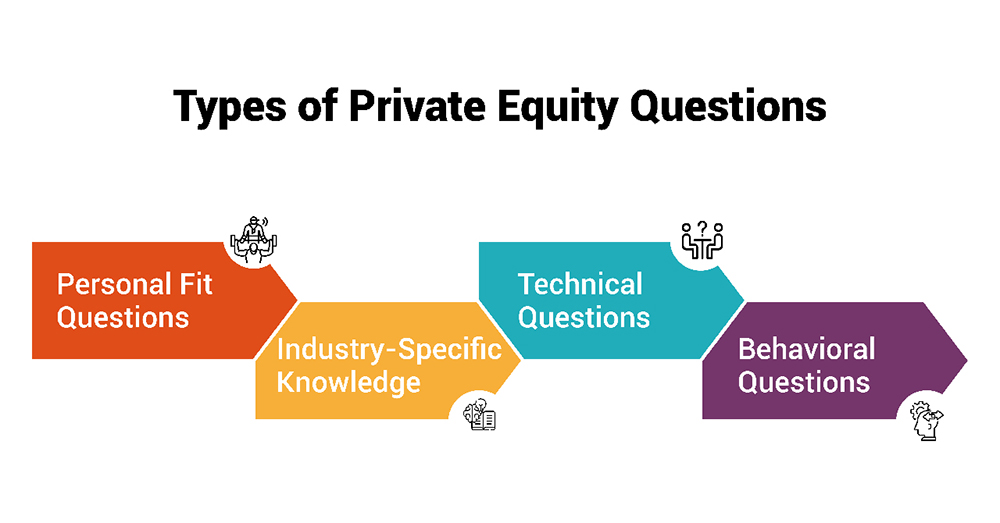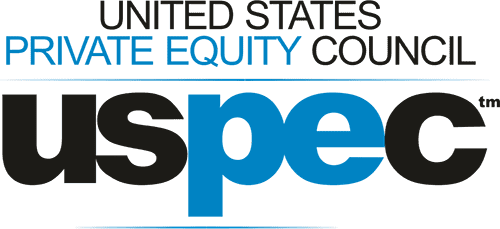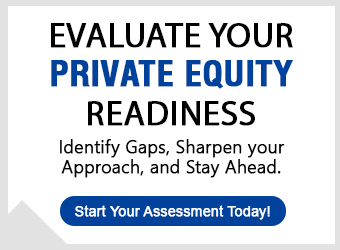Introduction
Getting into private equity is challenging and requires much work and reasoning. As a field offering promising jobs with meaningful careers, private equity careers entice the best financial executives. Thus, the interviews are claimed to be critical, as they embrace technical questions, behavioral issues, and industry-specific knowledge. Therefore, knowledge and preparation in these crucial areas are essential for success in this demanding but highly satisfying specialty.
Breaking Down the Private Equity Interview Process
Interviews for private equity careers are complex as firms attempt to gauge candidates’ technical knowledge and compatibility with the company culture. Usually, contenders must appear for several interview stages, each designed to cover various skills.
-
Behavioral Interviews: Determine character strength, management style, collaboration, and compatibility of the candidate with the organization’s ethos.
-
Technical Interviews: Strong emphasis on ascertaining company value, financial modeling, and comprehensive knowledge of leveraged buyouts (LBOs) and mergers and acquisitions.
-
Industry Knowledge: An overall strength in market knowledge, the performance of sectors, and the most recent M&A deals can add to your response view and depict strategic thinking in investment.
All these steps are essential as firms search for candidates with technical skills, excellent performance under pressure, and fit with a company’s vision and values.
Behavioral Questions: Showcasing Your Fit in Private Equity
The behavioral questions used in a private equity interview are geared towards determining how suitable you are in terms of cultural, ethical, and structural fit for the specific agency. These questions often stress your body of experience. They are aimed at the prognosis of further conduct, hone your coping with stress, teamwork, and problem-solving skills, which are all preeminent in private equity careers.

Example Question 1: Tell me about a situation when you had to accomplish a task within a limited time.
Sample Answer: While answering this question, it is good to emphasize time management and performance during stressful periods. For example, you may describe a situation in which you were in charge of a significant project that demands multitasking and the ability to deliver quality work. This demonstrates how you manage your time and deal with stress, which is very important in the dynamic private equity environment.
Example Question 2: Describe how you have solved conflicts, especially when working in a group or on a group project.
Sample Answer: Here, it is possible to organize the description using the STAR (Situation, Task, Action, Result) method. Explain the details of the project background, the problems experienced, and the measures taken together with the result. When completing the questionnaire, stress your achievements in working with others, being a leader, and what you can do for a team. For example, handling a conflict in the team or searching for a solution to unexpected issues reflects the applicant’s capacity to handle social processes and work productively in a team.
Using these examples in preparation for the interviews illustrates your preparedness for the difficulties of private equity careers and the compatibility with the firm’s culture.
Technical Questions: Demonstrating Your Financial Acumen
In private equity careers, technical skills are essential, especially when they show the candidate’s ability to comprehend abstract equations and apply them practically. Recruiting managers are also keen on determining a candidate's level of knowledge in areas such as financial modeling valuation and a good understanding of vital investment metrics. Topics can span from essential areas, including a definition of the DCF technique, to more complex issues, such as creating the LBO model.
Example Question 3: Explain the workings of an LBO model.
Sample Answer: To answer this, break down the LBO process by computing purchase price, sources and uses of funds, cash flows, and internal rates of return (IRR). To ensure space is well utilized, emphasize the impacts of leverage on returns and sensitivity analysis.
Example Question 4: How would you value a company with negative cash flows?
Sample Answer: Here, show awareness of other valuation techniques involving revenue multiples, company comparisons, or prior transactions. To elaborate on the context, involving the industry life cycle concept and the company’s growth potential is necessary.
Example Question 5: What are the main components in the DCF model, and how is the terminal value arrived at?
Sample Answer: Analyze how to forecast free cash flows, decisions on the discount rate, and the last stage of ascertaining the terminal value through perpetual growth rate or exit multiple methods. Highlight the importance of correct assumption and risk assessment by conducting a sensitivity analysis.
Example Question 6: What criteria are used to evaluate the effects of various forms of capital on the performance of the enterprise?
Sample Answer: Explain methods for comparing different financing methods – such as debt and equity financing – and the impact on the ROE and interest coverage ratios. Discuss how capital structure management impacts business risk and cost of capital.
The candidates should be ready to justify their answers rationally and coherently, proving their knowledge of finance, flexibility, and analytical thinking, which are required for private equity jobs.
Industry-Specific Knowledge: What PE Firms Expect
Knowledge of the industry and general trends in the market is essential to private equity firms when hiring candidates. Forecasting the magnitude of growth in different sectors is necessary because private equity firms may aim at industries with growth or strategic significance. During interviews, it is pretty standard to be asked various questions to check the candidate’s awareness of some sectors and trends.
Example Question 7: In your view, which industries can be considered promising for expansion in the next five years and why?
Sample Answer: Increased demand for digital health solutions and raised awareness, the growing elderly population and the use of AI will drive the growth of healthcare technology firms, especially companies that incorporate technology into the delivery of care services, which will be ideal prospects for investors.
Example Question 8: What should one consider when analyzing a firm in a cyclical industry?
Sample Answer: In cyclical industries, I would assess their well-being in the business cycle via an evaluation of their costs, cash balances, and diversification in the business cycle, as well as their positioning against the competition during the recovery phase.
Example Question 9: What role does regulation play in private equity investment in the energy sector?
Sample Answer: Regulation can make a tremendous impact on energy investments. Stringent environmental policies may push capital to renewable energy, and deregulation in oil and gas may open horizons of expansion for private equity firms, but again, regulatory risks are something they cannot overlook.
Example Question 10: How does technology affect traditional business models?
Sample Answer: Technological advancement realigns industries, making certain sectors obsolete; private equity firms seek out businesses that utilize tech to optimize efficiency or market access, which, in the long run, presents growth potential.
Personal Fit Questions: Aligning Your Career Goals with the Firm's Vision
In private equity careers, fit questions explore how your values, motivations, and ideals match the firm’s direction and vision. They offer an avenue through which the candidates can display their understanding of the firm’s mission and willingness to be productive and valuable.
Example Question 11: Why do you want to work in private equity?
Sample Answer: To answer this question, stress your passion for the private equity profession. Emphasize your desire to detect value, develop promising investments, understand the role of private equity in adapting enterprises, and enjoy cooperating with talented people. Ensure that you explain how your skills and experience will contribute to the firm’s way of managing investments and value addition.
Example Question 12: Where do you see yourself in five years?
Sample Answer: This question helps the employer establish whether your career and future goals align well with the firm’s growth plan. Develop an understandable career plan to progress within the private equity sector, help the company succeed, and assume more complex responsibilities. Be as ambitious as you want professionally, but ensure this aspiration is synonymous with the firm's growth. Being future-oriented and aligned with the firm’s goals will help you to achieve the goal of passing the interview and becoming a member of the team.
Conclusion
The private equity interview questions are technical and behavioral, so it is necessary to understand the concepts and be prepared well. And that’s where private equity case studies and private equity careers come into play — you can outcompete your peers by proving your worth. Be confident and intelligent while going through different stages and try to make employers realize why you are the best candidate.








